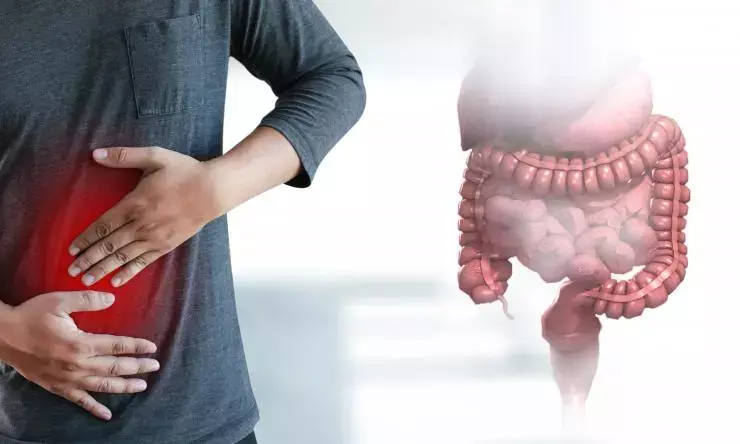- Home
- Medical news & Guidelines
- Anesthesiology
- Cardiology and CTVS
- Critical Care
- Dentistry
- Dermatology
- Diabetes and Endocrinology
- ENT
- Gastroenterology
- Medicine
- Nephrology
- Neurology
- Obstretics-Gynaecology
- Oncology
- Ophthalmology
- Orthopaedics
- Pediatrics-Neonatology
- Psychiatry
- Pulmonology
- Radiology
- Surgery
- Urology
- Laboratory Medicine
- Diet
- Nursing
- Paramedical
- Physiotherapy
- Health news
- Fact Check
- Bone Health Fact Check
- Brain Health Fact Check
- Cancer Related Fact Check
- Child Care Fact Check
- Dental and oral health fact check
- Diabetes and metabolic health fact check
- Diet and Nutrition Fact Check
- Eye and ENT Care Fact Check
- Fitness fact check
- Gut health fact check
- Heart health fact check
- Kidney health fact check
- Medical education fact check
- Men's health fact check
- Respiratory fact check
- Skin and hair care fact check
- Vaccine and Immunization fact check
- Women's health fact check
- AYUSH
- State News
- Andaman and Nicobar Islands
- Andhra Pradesh
- Arunachal Pradesh
- Assam
- Bihar
- Chandigarh
- Chattisgarh
- Dadra and Nagar Haveli
- Daman and Diu
- Delhi
- Goa
- Gujarat
- Haryana
- Himachal Pradesh
- Jammu & Kashmir
- Jharkhand
- Karnataka
- Kerala
- Ladakh
- Lakshadweep
- Madhya Pradesh
- Maharashtra
- Manipur
- Meghalaya
- Mizoram
- Nagaland
- Odisha
- Puducherry
- Punjab
- Rajasthan
- Sikkim
- Tamil Nadu
- Telangana
- Tripura
- Uttar Pradesh
- Uttrakhand
- West Bengal
- Medical Education
- Industry
Role of Diet in Irritable Bowel Syndrome: AGA Clinical Practice Update

In a new review, William D. Chey and their team have done an intensive study and provided a series of best practice advice for patients with Irritable bowel syndrome (IBS).This expert review was commissioned and approved by the AGA CPU Committee and the AGA Governing Board to provide timely guidance on a topic of high clinical importance to the AGA membership.
The review of AGA Clinical Practice Update on Role of Diet in Irritable Bowel Syndrome has been published in the Gastroenterology journal.
Irritable bowel syndrome is a frequent clinical illness that can have a significant influence on one's quality of life. The majority of IBS patients relate their gastrointestinal symptoms with eating. A growing body of research suggests that dietary changes, such as the low–fermentable oligo-, di-, and monosaccharides and polyols (FODMAP) diet, can be used as a main therapy for IBS symptoms.
Some of the best practices are as follow:
1. Dietary guidance is best provided to IBS patients who are aware of their meal-related gastrointestinal symptoms and motivated to make the required adjustments. If a gastrointestinal registered dietitian nutritionist (RDN) is not accessible, alternative resources might help with diet intervention implementation.
2. Patients with IBS who are not good candidates for restrictive diet therapies should be screened for disordered eating or eating disorders using a comprehensive dietary history. These problems are widespread and sometimes ignored in gastrointestinal ailments.
3. Specific dietary treatments should be tried for a set period of time. If there is no clinical benefit, the diet therapy should be dropped in favor of another therapy option.
4. Patients should give dietary information that will aid in the development of a customized nutrition care plan in advance of a meeting with an RDN.
5. Soluble fiber is effective in relieving the overall symptoms of IBS.
6. The low-FODMAP diet is by far the most evidence-based diet strategy for IBS right now.
7. The low-FODMAP diet is divided into three phases: 1) restriction, 2) restoration of FODMAP foods, and 3) customization based on reintroduction outcomes.
8. Although observational studies have revealed that most IBS patients benefit from a gluten-free diet, randomized controlled trials have produced inconsistent outcomes.
9. Although there is minimal evidence that some biomarkers can predict responsiveness to diet therapy in IBS patients, there is insufficient evidence to justify their routine use in clinical practice.
In conclusion, specific dietary treatments should only be performed for a limited time; if no clinical response is obtained, the dietary intervention should be discontinued and/or shifted to a different treatment.
Reference:
Chey, W. D., Hashash, J. G., Manning, L., & Chang, L. (2022). AGA Clinical Practice Update on the Role of Diet in Irritable Bowel Syndrome: Expert Review. In Gastroenterology (Vol. 162, Issue 6, pp. 1737-1745.e5). Elsevier BV. https://doi.org/10.1053/j.gastro.2021.12.248
Medical Dialogues consists of a team of passionate medical/scientific writers, led by doctors and healthcare researchers. Our team efforts to bring you updated and timely news about the important happenings of the medical and healthcare sector. Our editorial team can be reached at editorial@medicaldialogues.in.
Dr Kamal Kant Kohli-MBBS, DTCD- a chest specialist with more than 30 years of practice and a flair for writing clinical articles, Dr Kamal Kant Kohli joined Medical Dialogues as a Chief Editor of Medical News. Besides writing articles, as an editor, he proofreads and verifies all the medical content published on Medical Dialogues including those coming from journals, studies,medical conferences,guidelines etc. Email: drkohli@medicaldialogues.in. Contact no. 011-43720751


